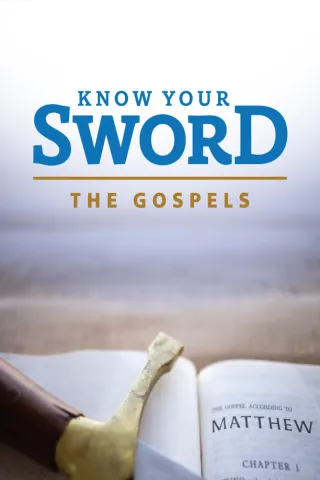
Course Content
Christ wants us to understand that His blood makes it possible for us to come before the very throne of God. Under the old covenant, only the priest could enter the area of the tabernacle known as the “Holiest of All” (Hebrews 9:6-10). In it was the “mercy seat,” which represented God’s throne. Leviticus 16 explains a ceremony that took place each year on the Day of Atonement, when the high priest sprinkled the blood of a goat on the mercy seat so the Israelites could be symbolically cleansed of all their sins (Leviticus 16:15-16). The goat’s blood represented the future sacrifice of Jesus Christ.
Jesus, as our High Priest, has entered the Most Holy Place by His own blood (Hebrews 9:11-12). Because the blood of Jesus Christ has cleansed us and made us pure, each of us enjoys direct access to the Father with Jesus Christ as our High Priest (Hebrews 9:24). As a result, we can now approach God without hesitation or fear of rejection, but with confidence and assurance to obtain God’s favor and mercy in time of need (Hebrews 10:19-22).
Let us rejoice, when we take the wine of the Passover, that the blood of Christ has made us worthy to experience an intimate relationship with God our Father!

Blood of the covenant
The blood of Christ also signifies that He has entered into an agreement—a covenant—with us. When Jesus instituted wine for the New Testament Passover, He said:
“Drink from it, all of you. For this is My blood of the new covenant . . .” (Matthew 26:27-28).
Why is taking wine, symbolic of His blood, called the “blood of the new covenant?”
Once again, we go to the Old Testament for background information. Paul explained that both parties under the old covenant manifested their agreement by the ceremony of sprinkling of blood. The Bible writers called this blood the “blood of the covenant” (Hebrews 9:18-20; Exodus 24:3-8).
It is of utmost importance that we understand that the following: our repentance of our sins, baptism, our acceptance of the blood of Jesus Christ to redeem us from the penalty of eternal death, and our belief (faith) in His promise to forgive our sins— all constitute a covenant, an agreement between two parties.
By accepting the blood of Christ for the remission of our sins, we enter a covenant relationship with the God of the universe! The terms of this covenant are absolute, because it was sealed with the shed blood and death of Jesus Christ (Hebrews 9:11-15). We renew that covenant every year when we partake of the Passover.
Let us understand the terms of that covenant relationship.
“‘This is the covenant that I will make with them after those days, says the LORD: I will put My laws into their hearts, and in their minds I will write them,’ then He adds, ‘Their sins and their lawless deeds I will remember no more’” (Hebrews 10:16-17).
We have already seen a major difference between the old and new covenants. Cleansing from sin is no longer accomplished by the sacrifice of animals, but by the blood of Jesus Christ.
There is another major difference. Under the new covenant, we learn that God will write His laws in our hearts and minds. Under the old, God simply gave His laws on tables of stone. The Israelites agreed to obey His laws without understanding that, by their own human efforts, they were unable to do this (Exodus 24:7-8).
His laws in our heart
This shows us the chief weakness of the old covenant (Hebrews 8:7-10). Israel did not have the heart to faithfully keep God’s commandments (Deuteronomy 5:29). Under the new covenant, God is writing His law in our hearts and minds. Not the laws of physical purification contained in the system of sacrifices, washings and service in the tabernacle; instead, He is adding to our very being His holy and righteous laws, which define right behavior and attitudes toward Him and our neighbor (Romans 7:12).
When we partake of the wine, we acknowledge the covenant relationship ratified by the blood of Jesus Christ. We are in effect saying we will allow God’s Spirit to work in our hearts and minds, meaning that we will keep God’s laws out of a deeply thankful attitude for His forgiveness of our sins. Without the gift of the Holy Spirit, we cannot muster up the spiritual strength to obey His laws.
The apostle Peter refers to us as the “elect...for obedience and sprinkling of the blood of Jesus Christ” (1 Peter 1:2). The Passover wine is a yearly renewal of our agreement to this covenantal relationship.
As we can see, the Passover is one of the most meaningful events of the year in the life of a Christian!
© Scott Ashley, 2025. All rights reserved.



